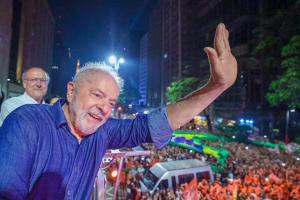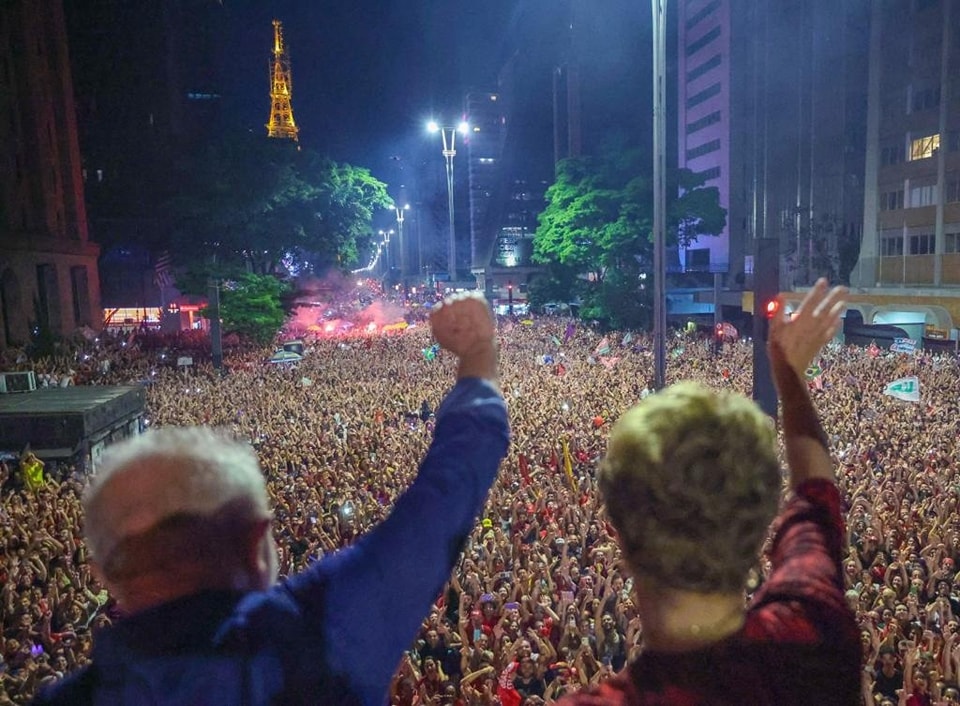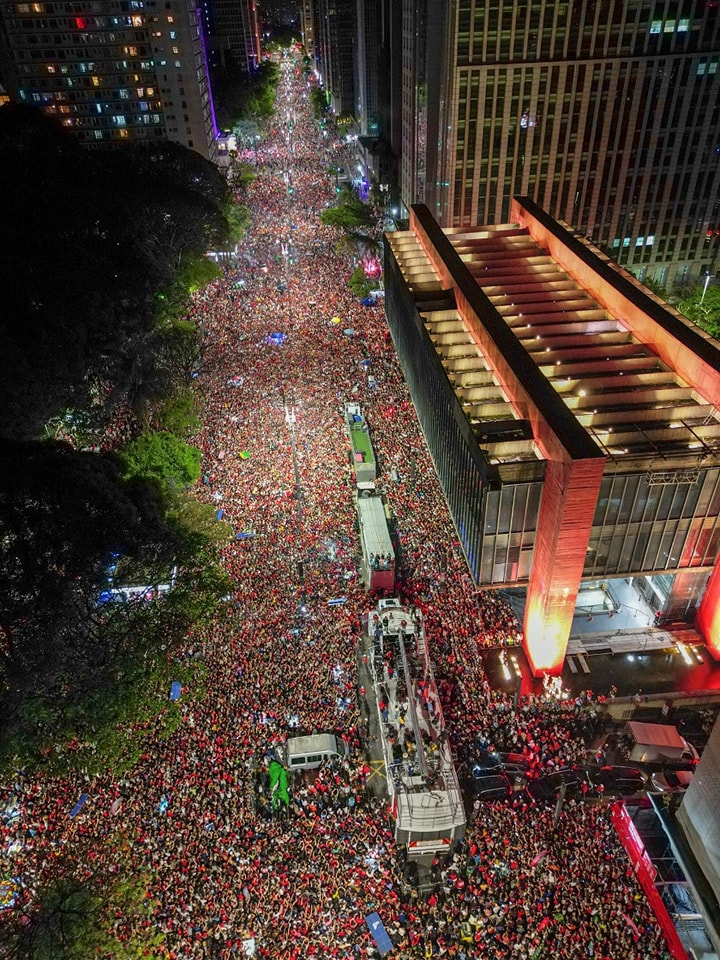
Lula after his victory. Photos courtesy his official Facebook page.
 *By Venkatesh Raghavan
*By Venkatesh Raghavan
The electoral victory of the left-leaning Luiz Inacio Lula Da Silva in the Presidential polls by just over 2 million votes has brought cheer to the labour and lower-middle class segments of the population in Brazil albeit it not receiving the final stamp from the losing candidate and incumbent president Jair Bolsanaro.
Bolsonaro has abstained from the formal speech that is expected to be made by the losing candidate after the presidential poll results are announced and it has sparked rumours about the likelihood of challenging the people’s mandate. While Lula dubbed it as a big triumph for democracy in the nation, Bolsonaro’s response to the narrow-margin win is yet not clear barring an unsubstantiated statement, hinting at the possibility of electoral fraud.

While Lula secured 6,03,45,999 votes, Bolsonaro got 5,82,06,354 votes. 57,00,443 votes were declared invalid. In the process, Lula, who earlier served as the 35th President of Brazil from 2003 to 2010, created history by defeating an incumbent President seeking re-election. This had never happened in Brazil’s 34–year-old democratic history. He said the reason for his victory was the “dedication” of those who believed in freedom and the “possibility to recover the country for the Brazilian people”.
The close contest that resulted in Lula securing 50.8% of the votes and edging past Bolsonaro who secured 49.2% of the votes has signalled that current-day Brazil is a heavily polarized nation. The polarization is between the far-right elements and the left-leaning labour class and other weaker sections besides minorities. People in the agrarian rural sector and lower strata of the economy are hoping to get relief from starvation and joblessness.

Amidst much jubilation on the streets of Brazil, with honking cars and guzzling of champagne, many were of the opinion that Lula’s victory will herald welcome relief from the economic gloom that has continued to plague the country for nearly decades. Brazil was acutely suffering during the Covid-19 pandemic period with very high casualty figures on the global scale. The crisis precipitated by the pandemic in the pre-poll years was compounded by massive deforestation of the Amazon forests giving rise to mounting concern on the environmental front.
While Bolsonaro is seen to have lost the battle owing to his far-right policies including the severe destruction of the world’s biggest rainforests, Lula was faced with setbacks owing to his track record that bore the former union leader turned President as a corrupt politician involved in heavy kickback emanating from government schemes. The pre-poll promises that managed to swing the fortunes in his favour included the introduction of an increased number of social welfare payments, and the fixing of higher minimum wages for the marginalized class of workers, besides providing food and shelter for the destitute classes.
Meanwhile, security preparations have been put in place to apprehend violent protest movements across the country by supporters of Bolsonaro. It is hinted that Brazil might face a la-Donald Trump (when he lost to Joe Biden) situation after the incumbent president lost narrowly to Lula. The authorities surmised that in the event Bolsonaro refuted the people’s mandate, it might lead to a serious law-and-order situation. Lula in his public address remarked that he is yet to receive any communication from the losing candidate and conceded that he was unsure about the response that will be forthcoming from Bolsonaro.
Though Brazil did witness ecstatic crowds, it is also expected from sources in authority that the legitimacy of the presidential poll outcome might be challenged. It required Lula to tread carefully till past the danger mark.
Congratulatory messages have started pouring in for the victorious Lula, including from US President Joe Biden and Canadian President Justin Trudeau. Indian Prime Minister Narendra Modi, in his message, said that he looked forward to working closely together to further deepen and widen the bilateral relations as also the cooperation on global issues.
*Senior journalist




